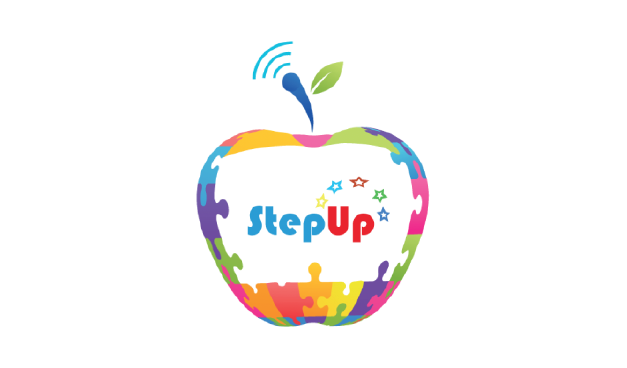Read the next two selections. Then choose the best answer to each question.
How the Camel got His Hump&
Plato: The Story of a Cat
How the Camel got His Hump
by Rudyard Kipling
1 In the beginning of years, when the world was new, and the Animals were just beginning to work for Man, there was a Camel, and he lived in the middle of a Howling Desert because he did not want to work. He was terribly idle, and when anybody spoke to him, he just said, “Humph!” and no more.
2 Presently, the Horse came to him, with a saddle on his back and a bit in his mouth, and said, “Camel, come out and trot like the rest of us.”
3 “Humph!” said the Camel, and the Horse went away and told the Man.
4 Presently, the Dog came to him, with a stick in his mouth, and said, “Camel, come and fetch and carry like the rest of us.”
5 “Humph!” said the Camel; and the Dog went away and told the Man.
6 Presently, the Ox came to him, with the yoke on his neck, and said, “Camel, come and plow like the rest of us.”
7 “Humph!” said the Camel, and the Ox went away and told the Man.
8 At the end of the day, the Man called the Horse and the Dog and the Ox together and said, “That ‘Humph’-thing in the desert can’t work, or he would have been here by now, so I am going to leave him alone, and you must work double-time to make up for it.”
9 That made the Three very angry, and they held a pow-wow on the edge of the desert, and the camel came chewing on milkweed and laughed at them. Then he said, “Humph!, and went away again.
10 Presently, there came along the Djinn (a magical creature) in charge of the deserts, rolling in a cloud of dust (Djinns always travel that way because it is magic), and he stopped to pow-pow with the Three.
11 “Djinn of All Deserts,” said the Horse, “is it right for anyone to be idle, with the world so new?”
12 “Certainly not,” said the Djinn.
13 “Well,” said the Horse, “there’s a thing in the middle of your Howling Desert with a long neck and long legs, and he hasn’t done a stroke of work. He won’t trot.”
14 “Whew!” said the Djinn, whistling, “That’s my Camel, for all the gold in Arabia! What does he say about it?”
15 “He says ‘Humph!’” said the Dog, “and he won’t fetch and carry.”
16 “Does he say anything else?”
17 He only says, ’Humph!’ And he won’t plow,” said the Ox.
18 “Very good,” said the Djinn. “I’ll humph him if you will kindly wait a minute.”
19 The Djinn rolled himself up in his dust-cloak, and took a bearing across the desert and found the Camel, looking at his own reflection in a pool of water.
20 “My long and bubbling friend,” said the Djinn, “what’s this I hear of your doing no work, with the world so new?”
21 “Humph!” said the Camel.
22 The Djinn sat down, with his chin in his hand, and began to think a great magic, while the Camel looked at his own reflection in the pool of water.
23 “You’ve given the other Three extra work, all on account of your terrible idleness,” said the Djinn, and he went on thinking magic, with his chin in his hand.
24 “Humph!” said the Camel.
25 “I shouldn’t say that again if I were you,” said the Djinn; “you might say it once too often. Bubbles, I want you to work.”
26 And the Camel said, “Humph!” again, but no sooner had he said it than he saw his back, that he was so proud of, puffing up and puffing up into a great big lolloping humph.
27 “Do you see that?” said the Djinn. “That’s your very own humph that you’ve brought upon your very own self by not working. Now you are going to work.”
28 “How can I,” said the Camel, “with this humph on my back?”
29 “That’s made a-purpose,” said the Djinn, “all because you missed three days of work. You will be able to work now for three days without eating because you can live on your humph, and don’t you ever say I never did anything for you. Come out of the Desert and go to the Three, and behave. Humph yourself!”
30 And the Camel humphed himself, humph and all, and went away to join the Three. And from that day to this, the camel always wears a humph (we call it ‘hump’ now, not to hurt his feelings); but he has never yet caught up with the three days that he missed at the beginning of the world, and he has never yet learned how to behave.
Plato: The Story of a Cat
by A. S. Downs
1 One-day last summer, a large, handsome, black cat walked gravely up one side of Main Street. He crossed, went half-way down the other, and stopped at our house. He came up the steps and paused by an open window.
2 We saw him and spoke to him, but he took no notice. He put his paws on the sill and looked around the room as if wondering if it would suit him. After thinking a minute, he came in, and from that hour took his place as an important member of the family.
3 At Christmas, we gave Plato a sweet little basket, with soft cushions, to be his own bed. When we put it before him, he showed neither surprise nor curiosity. He looked at it proudly, as if such a bed should have been given to him long ago. He stepped in carefully and curled himself gracefully upon the soft cushions.
4 It was soon seen that Plato was very fond of his basket and was reluctant to share it. When little Bessie put her doll in, he looked so stern and walked so fiercely toward them that Dolly’s heart sank within her, and Bessie said, “Please excuse us, Plato.” If balls and toys were carelessly dropped there, he would push them out without delay, and if visitors took up the basket to examine it, he would watch them intently, as if to say, “You’re not going anywhere with my basket. I’ve got my eye on you.”
5 One cold afternoon, he was noticed walking up the avenue with a miserable, little, yellow kitten dragging herself after him. She was so thin you could count her bones.
6 Upon one of the shed doors was an old-fashioned latch, which by jumping, Plato could reach and lift with his paw. Having opened the door, he pushed his poor, yellow straggler in and followed himself. She lay down at once on the floor, and Plato began washing her with his rough tongue while we brought her a saucer of milk. While she ate, Plato rested, looking as pleased as if he were her mother at her enjoyment. The lunch finished, the washing was resumed, and she soon looked more respectable.
7 But Plato was not finished. He looked at the door leading to the parlor, then at her, finally bent down tenderly to her little torn ears, as if whispering, but she would not move. So, taking her by the back of the neck, he carried her through the house and dropped her close to his cherished basket.
8 Then he appeared a little uncertain about what to do. The basket was nice and warm; he was tired and cold; it had been a present to him; the street wanderer was dirty still, and the rug would be a softer bed than she had ever known. Were these his thoughts, and was it selfishness he conquered when at last he lifted the shivering homeless creature into his own beautiful nest?
You just read two stories that show animals having human feelings. "How the Camel Got its Hump" and "Plato: The Story of a Cat." Drag and drop the correct feeling for each character as assigned to each box. Plato - Box No.1Kitten - Box No.2Camel - Box No.3Dog - Box No.4
Plato - Box No.1
Kitten - Box No.2
Camel - Box No.3
Dog - Box No.4
A. Lazy
B. Comfortable
C. Annoyed
D. Happy
Box 1
Read the selection and choose the best answer to each question.
The New Treasure-Seekers
by E. Nesbit
1 “Tell us how you did it, H.O.,” Dora said; “and quit saying it’s everybody else’s fault.”
2 “It’s yours as much as anyone’s, actually,” H.O. said. “You made me the clown costume when I asked you.”
3 “Oh, H.O., you are unkind!” Dora said. “You know you said it was for a surprise for the bride and groom.”
4 “So it would have been, if they’d found me at Rome, and I’d popped up like what I meant to— like a jack-in-the-box—and said, ‘Here we are again!’ in my clown’s clothes. But it’s all spoiled, and father’s going to scold me.” H.O. sniffed every time he stopped speaking. But, we did not correct him then. We wanted to hear about everything.
5 “Why didn’t you tell me straight out what you were going to do?” David asked.
6 “Because you’d have stopped me. You always do that if I want to do anything you haven’t thought of yourself.”
7 “What provisions did you take, H.O.?” asked Alice.
8 “Oh, I’d saved a lot of food, only I forgot it. And I had my knife—and I changed into the clown’s dress in the cupboard, and I got into the basket, and I lifted the tray up over my head and sat down and fitted it down over me. And none of you would ever have thought of it, let alone do it.”
9 “I should hope not,” Dora said, but H.O. went on, unhearing.
10 “It was unbearably hot and stuffy—I had to cut an air-hole in the cart, and I cut my thumb; it was so bumpy. And, they threw me about as if I was coals—and wrong way up as often as not. And, the train was awful wobbly, and I felt so sick, and if I’d had the food I couldn’t have eaten it. I had a bottle of water, and that was all right until I dropped the cork, and I couldn’t find it in the dark until the water fell over, and then I found the cork that minute.”
11 “And when they dumped the basket on to the platform, I was so glad to sit still a minute without being jogged I nearly went to sleep. And then I looked out, and the label was off, and lying close by. And then someone gave the basket a kick and said, ‘What’s this here?’ And I daresay I did squeak—like a rabbit-noise, you know—and then someone said, ‘Sounds like live-stock, doesn’t it?’ And then they trundled me off somewhere, on a wheelbarrow it felt like and dumped me down again in a dark place—and I couldn’t see anything more.”
12 “I wound up my watch, just for amusement. You know the row it makes ever since it was broken, and I heard someone say, ‘Sounds like an infernal machine’—and then, ‘If I was the inspector, I’d dump it down in the river.’ But the other said, ‘Leave it alone,’ so I wasn’t dumped. But then I heard them say ‘Police,’ so I let them have it.”
13 “I thrashed about in the basket, and I heard them all start off, and I shouted, ‘Hi, here! Let me out, can’t you!’ I kept talking to them through the cracks of the basket. And when they opened it, there was quite a crowd, and they laughed, and gave me bread and cheese, and said I was a plucky youngster—and I am, and it’s all your faults for not looking after me. Aren’t I your little brother?”
14 That evening, H.O. was ill in bed. The doctor said it was a fever from chill and excitement, but I think myself it was the things he ate at lunch, and the shaking up, and then the bread and cheese.
15 He was ill for a week. When he recovered, not much was said. My father, who is the fairest man in England, said the boy had been punished enough—for he missed going to the theatre, and he had to take a lot of the filthiest medicine I ever tasted.
16 The only real punishment he had was seeing the clown’s dress burnt before his eyes by Father. But when he recovered, we soon taught him not to say again that it was any of our faults. He is our little brother, and we are not going to stand that kind of cheek from him.
What is the meaning of the word cheek in paragraph 16? Highlight the correct answer choice.
- friendliness
- disrespect
- bravery
- confidence
Read the selection and choose the best answer to each question.
Hans Brinker
by Mary Mapes Dodge
1 On a bright December morning long ago, two thinly clad children were kneeling upon the bank of a frozen canal in Holland.
2 The sun had not yet appeared, but the gray sky was parted near the horizon, and its edges shone crimson with the coming day. Most of the good Hollanders were enjoying a placid morning nap.
3 Meanwhile, with many a vigorous puff and pull, the brother and sister, for such they were, seemed to be fastening something to their feet—not skates, certainly, but clumsy pieces of wood narrowed and smoothed at their lower edge, and pierced with holes, through which were threaded strings of rawhide.
4 These queer-looking affairs had been made by the boy Hans. His mother was a poor peasant woman, too poor even to think of such a thing as buying skates for her little ones. Rough as these were, they had afforded the children many a happy hour upon the ice.
5 In a moment, the boy arose and, with a pompous swing of the arms and a careless “Come on, Gretel,” glided easily across the canal
6 “Ah, Hans,” called his sister plaintively, “this foot is not well yet. The strings hurt me on last market day, and now I cannot bear them tied in the same place.”
7 “Tie them higher up, then,” answered Hans, as without looking at her he performed a wonderful cat’s cradle step on the ice.
8 “How can I? The string is too short.”
9 Giving vent to a good-natured Dutch whistle, the English translation of which was that girls were troublesome creatures, he steered toward her.
10 “You are foolish to wear such shoes, Gretel, when you have a stout leather pair. Your wooden shoes would be better than these.”
11 “Why, Hans! Do you forget? The father threw my beautiful new shoes in the fire. Before I knew what he had done, they were all curled up in the midst o the burning peat. I can skate with these, but not with my wooden ones. Be careful now—”
12 Hans had taken a string from his pocket. Humming a tune as he knelt beside her, he proceeded to fasten Gretel’s skate with all the force of his strong young arm.
13 “Oh! Oh!” she cried in real pain.
14 With an impatient jerk, Hans unwound the string. He would have cast it on the ground, in true big-brother style, had he not just then spied a tear trickling down his sister’s cheek.
15 “I’ll fix it—never fear,” he said with sudden tenderness, “but we must be quick. The mother will need us soon.”
16 His eye suddenly brightened as, with the air of a fellow who knew what he was about, he took off his cap and, removing the tattered lining, adjusted it in a smooth pad over the top of Gretel’s worn-out shoe.
17 “Now,” he cried triumphantly, at the same time arranging the strings as briskly as his benumbed fingers would allow, “can you bear some pulling?”
18 Gretel drew up her lips as if to say, “Hurt away,” but made no further response.
19 In another moment, they were all laughing together, as hand in hand, they flew along the canal, never thinking whether the ice would bear them or not, for, in Holland, ice is generally an all winter affair. It settles itself upon the water in a determined kind of way, and so far from growing thin and uncertain every time the sun is a little severe upon it, it gathers its forces day by day and flashes defiance to every beam.
20 Presently, squeak! squeak! sounded something beneath Hans’ feet. Next, his strokes grew shorter, ending of times with a jerk, and finally, he lay sprawling upon the ice, kicking against the air with many a fantastic flourish.
21 “Ha! ha!” laughed Gretel. “That was a fine tumble!” But a tender heart was beating under her coarse blue jacket, and even as she laughed, she came, with a graceful sweep, close to her prostrate brother.
22 “Are you hurt, Hans? Oh, you are laughing! Catch me now!” And she darted away, shivering no longer, but with cheeks, all aglow and eyes sparkling with fun.
23 Hans sprang to his feet and started in brisk pursuit, but it was no easy thing to catch Gretel. Before she had traveled very far, her skates, too, began to squeak.
24 Believing that discretion was the better part of valor, she turned suddenly and skated into her pursuer’s arms.
25 “Ha! Ha! I’ve caught you!” cried Hans.
26 “Ha! Ha! I caught YOU,” she retorted, struggling to free herself.
27 Just then, a clear, quick voice was heard calling, “Hans! Gretel!”
28 “It’s the mother,” said Hans, looking solemn in an instant.
What is the importance of paragraph 14? Drag and drop the correct option into the box below.
A. It shows that Hans is annoyed with his sister but is trying to be patient with her.
B. It shows that Hans and Gretel do not get along very well.
C. It explains why the children don’t have much time for skating.
D. It explains why the family is poor and why Hans has to take care of his sister.
Box 1
 Online Program
Online Program




 Reading: Literature (RL.5.3)
Reading: Literature (RL.5.3)  Incomplete Answer
Incomplete Answer